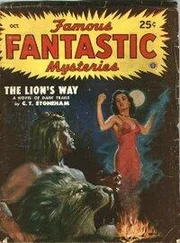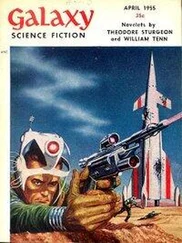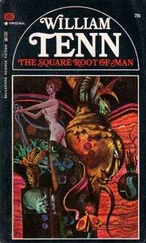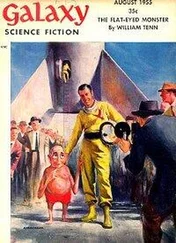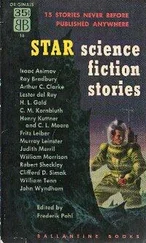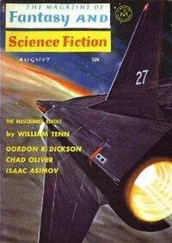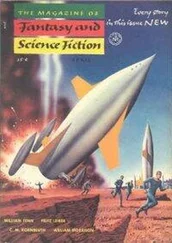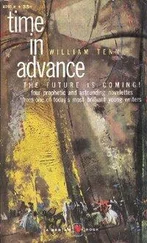William Tenn - The Ghost Standard
Здесь есть возможность читать онлайн «William Tenn - The Ghost Standard» весь текст электронной книги совершенно бесплатно (целиком полную версию без сокращений). В некоторых случаях можно слушать аудио, скачать через торрент в формате fb2 и присутствует краткое содержание. Год выпуска: 1994, Жанр: Фантастика и фэнтези, на английском языке. Описание произведения, (предисловие) а так же отзывы посетителей доступны на портале библиотеки ЛибКат.
- Название:The Ghost Standard
- Автор:
- Жанр:
- Год:1994
- ISBN:нет данных
- Рейтинг книги:3 / 5. Голосов: 1
-
Избранное:Добавить в избранное
- Отзывы:
-
Ваша оценка:
- 60
- 1
- 2
- 3
- 4
- 5
The Ghost Standard: краткое содержание, описание и аннотация
Предлагаем к чтению аннотацию, описание, краткое содержание или предисловие (зависит от того, что написал сам автор книги «The Ghost Standard»). Если вы не нашли необходимую информацию о книге — напишите в комментариях, мы постараемся отыскать её.
The Ghost Standard — читать онлайн бесплатно полную книгу (весь текст) целиком
Ниже представлен текст книги, разбитый по страницам. Система сохранения места последней прочитанной страницы, позволяет с удобством читать онлайн бесплатно книгу «The Ghost Standard», без необходимости каждый раз заново искать на чём Вы остановились. Поставьте закладку, и сможете в любой момент перейти на страницу, на которой закончили чтение.
Интервал:
Закладка:
The Ghost Standard
by William Tenn
Remember the adage of the old English legal system: “Let justice be done though the heavens fall"? Well, was justice done in this case?
You have three entities here. An intelligent primate from Sol III—to put it technically, a human. An equally intelligent crustacean from Procyon VII—in other words, a sapient lobstermorph. And a computer of the Malcolm Movis omicron beta design, intelligent enough to plot a course from one stellar system to another and capable of matching most biological minds in games of every sort, from bridge to chess to double zonyak.
Now—add a shipwreck. A leaky old Cascassian freighter comes apart in deep space. I mean quite literally comes apart. Half the engine segment explodes off, the hull develops leaks and begins to collapse, all those who are still alive and manage to make it to lifeboats get away just before the end.
In one such lifeboat you have the human, Juan Kydd, and the lobstermorph, Tuezuzim. And, of course, the Malcolm Movis computer—the resident pilot, navigator and general factotum of the craft.
Kydd and Tuezuzim had known each other for more than two years. Computer programmers of roughly the same level of skill, they had met on the job and had been laid off together. Together they had decided to save money by traveling on the scabrous Cascassian freighter to Sector N-42B5, where there were rumored to be many job opportunities available.
They were in the dining salon, competing in a tough hand of double zonyak, when the disaster occurred. They helped each other scramble into the lifeboat. Activating the computer pilot, they put it into Far Communication Mode to search for rescuers. It informed them that rescue was possible no sooner than twenty days hence, and was quite likely before thirty.
Any problems? The lifeboat had air, fuel, more than enough water. But food…
It was a Cascassian freighter, remember. The Cascassians, of course, are a silicon-based life-form. For their passengers, the Cascassians had laid in a supply of organic, or carbon-based, food in the galley. But they had not even thought of restocking the lifeboats. So the two non-Cascassians were now imprisoned for some three to four weeks with nothing to eat but the equivalent of sand and gravel.
Or each other, as they realized immediately and simultaneously.
Humans, on their home planet, consider tinier, less-sapient crustaceans such as lobsters and crawfish great delicacies. And back on Procyon VII, as Tuezuzim put it, “We consider it a sign of warm hospitality to be served a small, succulent primate known as spotted morror.”
In other words, each of these programmers could eat the other. And survive. There were cooking and refrigerating facilities aboard the lifeboat. With careful management and rationing, meals derived from a full-size computer programmer would last till rescue.
But who was to eat whom? And how was a decision to be reached?
By fighting? Hardly. These were two highly intellectual types, neither of them good physical exemplars of their species.
Kydd was round-shouldered, badly nearsighted and slightly anemic. Tuezuzim was somewhat undersized, half deaf and suffering from one crippled chela. The claw had been twisted at birth and had never matured normally. With these disabilities, both had avoided participation in athletic sports all their lives, especially any sport of a belligerent nature.
Yet the realization that there was nothing else available to eat had already made both voyagers very hungry. What was their almost-friendship compared with the grisly prospect of starvation?
For the record, it was the lobstermorph, Tuezuzim, who suggested a trial by game, with the computer acting as referee and also as executioner of the loser. Again, only for the record and of no importance otherwise, it was the human, Juan Kydd, who suggested that the logical game to decide the issue should be Ghost.
They both liked Ghost and played it whenever they could not play their favorite game—that is, when they lacked zonyak tiles. In the scrambling haste of their emergency exit, they had left both web and tiles in the dining salon. A word game now seemed the sole choice remaining, short of flipping a coin, which—as games-minded programmers—they shrugged off as childishly simplistic. There also was the alternative of trial by physical combat, but that was something that neither found at all attractive.
Since the computer would function as umpire and dispute-settling dictionary as well as executioner, why not make it a three-cornered contest and include the computer as a participant? This would make the game more interesting by adding an unpredictable factor, like a card shuffle. The computer could not lose, of course—they agreed to ignore any letters of Ghost that it picked up.
They kept the ground rules simple: a ten-minute time limit for each letter; no three-letter words; the usual prohibition against proper nouns; and each round would go in the opposite direction from that of the previous round. Thus, both players would have equal challenging opportunities, and neither would be permanently behind the other in the contest.
Also, challenging was to be allowed across the intervening opponent—the computer, not part of the combat.
Having sent off one last distress signal, they addressed themselves to programming the computer for the game (and the instantaneous execution of the loser). Combing through the immense software resources of the computer, they were pleased to discover that its resident dictionaries included Webster’s First and Second, their own joint favorites. They settled on the ancient databases as the supreme arbiters.
The verdict-enforcer took a little more time to organize. Eventually, they decided on what amounted to a pair of electric chairs controlled by the computer. The killing force would be a diverted segment of the lifeboat’s Hametz Drive. Each competitor would be fastened to his seat, locked in place by the computer until the game was over. At the crucial moment, when one of them incurred the t in Ghost, a single blast of the diverted drive would rip through the loser’s brain, and the winner would be released.
“Everything covered?” asked Tuezuzim as they finished their preparations. “A fair contest?”
“Yes, everything’s covered,” Kydd replied. “All’s fair. Let’s go.”
They went to their respective places: Kydd to a chair, Tuezuzim to the traditional curved bed of the lobstermorph. The computer activated their electronic bonds. They stared at each other and softly said their goodbyes.
We have this last information from the computer. The Malcolm Movis omicron beta is bundled at sale with Al-truix 4.0, a fairly complex ethicist program. It was now recording the proceedings, with a view to the expected judicial inquest.
The lobstermorph drew the first g. He had challenged Juan Kydd, who had just added an e to t-w-i-s. Kydd came up with twisel, the Anglo-Saxon noun and verb for fork. To Tuezuzim’s bitter protests that twisel was archaic, the Malcolm Movis pointed out that there had been no prior agreement to exclude archaisms.
Kydd himself was caught a few minutes later. Arrogant over his initial victory, he was helping to construct laminectomy ("surgical removal of the posterior arch of a vertebra") by adding m after l-a-m-i-n-e-c-t-o. True, this would end on the computer’s turn, which could incur no penalty letters, but Kydd was willing to settle for a neutral round. Unfortunately, he had momentarily forgotten the basic escape hatch for any seasoned Ghost player—plurals. The Malcolm Movis indicated i, and Tuezuzim added the e so fast it sounded like an echo. There was absolutely no escape for Kydd from the concluding s in laminectomies.
Читать дальшеИнтервал:
Закладка:
Похожие книги на «The Ghost Standard»
Представляем Вашему вниманию похожие книги на «The Ghost Standard» списком для выбора. Мы отобрали схожую по названию и смыслу литературу в надежде предоставить читателям больше вариантов отыскать новые, интересные, ещё непрочитанные произведения.
Обсуждение, отзывы о книге «The Ghost Standard» и просто собственные мнения читателей. Оставьте ваши комментарии, напишите, что Вы думаете о произведении, его смысле или главных героях. Укажите что конкретно понравилось, а что нет, и почему Вы так считаете.

